Starting a business involves a period of trial and error, but there are mistakes business owners can avoid right from the get-go. One of the common mistakes business startups make is not investing in proper technology that streamlines crucial parts of the business operation. These include bookkeeping. Despite knowing the importance of meticulous bookkeeping in business continuity and growth, startup owners tend to either hire inexperienced professionals or do the bookkeeping themselves. While the idea behind this choice is to save money, there is a high risk of human error that can cost the business more in reality.
Leaving the bookkeeping responsibilities to an experienced professional, however, is no longer enough. In this day and age, when a significant part of business transactions are completed online, even small startups are encouraged to invest in bookkeeping software systems. This is where another dilemma arises, particularly when it comes to choosing which software solution addresses a startup business’ bookkeeping needs without breaking the bank even if the owner does not have any accounting experience.
In this article, we list 15 of the best bookkeeping software for startups to help you decide which one suits the needs of your business in terms of functionality, price, and scalability.
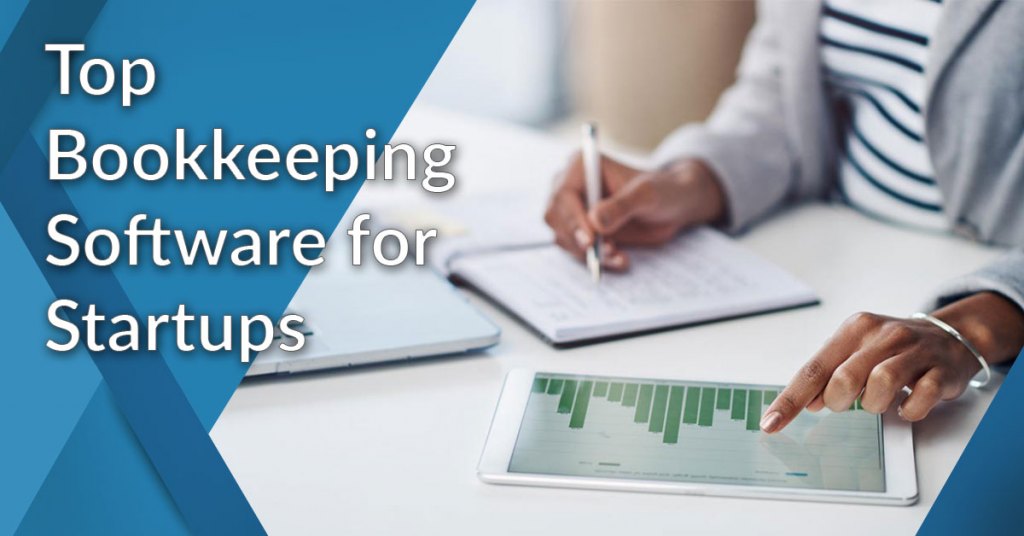
What are the top bookkeeping software for startups?
Outsourcing accounting services is a common practice among small businesses. According to a report by Wasp Barcode on critical accounting challenges, 71% of SMBs pay for professional services to perform at least one accounting function, which includes bookkeeping. This practice, however, is far from perfect. Based on the same report, 47% of SMB owners complain that their accountants are more reactive than proactive in dealing with financial concerns, which then leads to bigger issues that affect the business’s overall financial health.
Part of this problem is the fact that there are still accountants and bookkeepers who stick to traditional practices of using spreadsheets and even paper ledgers. Not only do these old methods make accounting and bookkeeping less efficient, they also make the process even more prone to errors.
Bookkeeping Challenges for Small Businesses in 2022
Source: Wasp, 2022
Designed byResearch conducted by Xero reveals that 45% of advisors agree that adopting digital practices is the key to not only surviving but also thriving in the current state of the business industry. This is the reason why a significant number of businesses around the world are still in the process of transforming their bookkeeping operations digitally.
What are the security considerations when choosing bookkeeping software?
For startups, ensuring financial data security is critical as they work to establish trust and credibility. Here’s what startups should consider when selecting secure bookkeeping software:
- Data Encryption Standards
Choose software that uses strong encryption (e.g., 256-bit encryption) to protect data both at rest and in transit. This ensures that sensitive information like financial transactions and personal details remains secure. - Two-Factor Authentication (2FA)
Bookkeeping software with 2FA adds an extra layer of security by requiring a second form of identification beyond a password, reducing the risk of unauthorized access. - User Access Controls
Look for software that allows you to set role-based access controls, ensuring that only authorized users can access specific financial data and functionalities. This is particularly important for startups with multiple team members involved in financial management. - Data Backup and Recovery
A reliable bookkeeping solution should provide automated backups and easy recovery options to protect against data loss due to system failures or cyber-attacks. This feature can prevent critical data disruptions and help maintain business continuity. - Compliance with Regulations
Choose a solution that complies with data protection regulations like GDPR, CCPA, or PCI-DSS, as applicable. This can help avoid legal complications and assure customers of your commitment to data security. - Audit Trails
Audit trails that log user actions within the software help track changes, providing transparency and accountability. This feature is crucial for identifying potential security breaches or unauthorized activities.
Recently launched businesses, however, not only have the advantage of going digital right from the get-go—they now also have varied selections of bookkeeping software for startups and below are some of the best ones you can find.
Top Bookkeeping Software for Startups
1. FreshBooks

This award-winning accounting solution takes the top spot on our list. Designed with small businesses in mind, FreshBooks is all about providing SMBs and freelancers with powerful features in cost-efficient plans. FreshBooks equips business startups with double-entry accounting tools, which allow startup owners to automate time-consuming processes to manage their cash flow. One of these processes is easy invoicing and billing with the help of FreshBooks’ invoice generator. This feature allows businesses and freelancers to create professional-looking invoices that reflect their brand.
Other main modules include time tracking, expense tracking, project management, and reporting. The platform’s payment processing features are very comprehensive and easy to use, even for clients. Your clients can pay directly from the invoice itself using their credit card or other payment gateway platforms, such as Stripe and PayPal.
Moreover, FreshBooks does not only give you more control over payment processes but also provides you with useful automation tools. It allows users to set recurring payments, send reminders, charge late fees, and other billing and invoicing processes on autopilot. This gives them more time to focus more on other areas of their businesses.
Furthermore, FreshBooks has a mobile application for iOS and Android devices. This app allows you to generate invoices for your clients no matter where you are. Pricing starts at $15 per month.
Detailed FreshBooks Review
Key Features of FreshBooks
- Online Invoicing
- Time Tracking
- Project Management
- Payments
- Tax Compliance
- Late Payment Fees
- Centralized Conversations
- Accounting Reports
2. NetSuite ERP

Even startups can have the same accounting platforms that streamline the bookkeeping process of large organizations. NetSuite ERP has cloud accounting software that streamlines your business’ accounting and bookkeeping processes from end to end. These processes include invoicing, payment processing, domestic and global tax management, and real-time visibility over your financial data.
Different businesses have different accounting and bookkeeping processes. NetSuite ERP addresses this by providing startups with a dynamic general ledger that you can customize according to your business requirements. Among the ledger’s customizable features are account types, types of transactions, and reporting. Furthermore, you can automate various processes, such as workflows, transaction matching, and journal entry posting. In this way, you will not have to worry about having inaccurate financial records.
Moreover, the platform is known for its revenue recognition module. This provides users with tools to produce timely financial reports and comply with regulations. Also, it is prized for its holistic bookkeeping offering. NetSuite ERP has modules for payroll services and human capital management within its integrated process workflow.
Furthermore, its tax management module provides you with user-friendly tools to help you manage both local and global taxes. These tools include generating reports that reflect every tax detail as well as the type of taxes included in each transaction. As for how much NetSuite ERP can cost you, it all depends on the type of platform and additional modules you would like to subscribe to. This can work to a business startup’s advantage as you have full control of the tools you want to invest in.
Detailed NetSuite ERP Review
Key Features of NetSuite ERP
- Tax Management
- Procure-to-Pay
- Order-to-Cash
- Flexible Payment Processing
- Vendor Management
- Integrated Process Workflow
- Financial Planning
- Inventory Control
3. QuickBooks Online

Another leading accounting solution made for freelance bookkeepers, small businesses, and startups is QuickBooks Online. The solution offers all the essential bookkeeping and accounting tools in one platform—also, at very affordable pricing plans. These tools include invoice creation and management, bill management, and payment management. Moreover, QuickBooks Online provides automatic tax calculations, banking and data synchronization, and other automation options.
At a starting price of $12 per month, a startup can have access to QuickBooks Online’s income and expenses management feature. This is useful in keeping an accurate and organized record of your business-related expenses. This feature imports transaction details from your business credit card or debit card, as well as your business’ PayPal and Square accounts.
Moreover, if your expenses have a physical receipt, all you need to do is to take a photo of your receipt and the system will automatically match it with your expenses. The taxes included in each transaction are also instantly sorted into different tax categories. This not only saves you from the grueling paperwork but also gives you more time to focus on other urgent tasks to grow your business.
Also, if you are a startup business owner who is not familiar with the proper ways of bookkeeping, QuickBooks Online offers the service of certified bookkeepers. These bookkeepers can help you with your QuickBooks Online setup, which includes automating different processes, linking your credit cards and banks, creating reports, and more for an additional fee of $50.
Detailed QuickBooks Online Review
Key Features of QuickBooks Online
- Bill Management
- Payment Tracking
- Estimate Creation
- Automated Online Banking
- Custom Invoices
- Balance Sheet Reporting
- Check Printing
- Actionable Insights
4. Sage Business Cloud Accounting

Formerly known as Sage One, Sage Business Cloud Accounting enables startup and small business owners to take over their bookkeeping and accounting operations with more ease, efficiency, and accessibility. This cloud-based platform makes invoicing and billing a breeze not only because it is easy to set up but is even easier to operate.
Equipped with robust automation capabilities, Sage Business Cloud Accounting reduces the time spent on the admin work related to tracking down and organizing payments and expenses. Moreover, you can set up different types of workflows, such as automated posting of expenses and payments to and from your bank accounts. In this way, you will be able to monitor not only your business-related expenses but also your clients’ payment status. Furthermore, the AutoEntry feature makes it easy to capture data from receipts, bank statements, etc., and organize them in their proper categories.
Aside from the ability to create, send, and track invoices automatically, you can also generate custom quotes for your clients if you offer this type of pricing plan for your products or services. Sage Business Cloud Accounting also enables you to embed a pay button on your receipts that your clients can use to send their payments via Stripe.
With all this automation, you’ll have more time to focus on building and promoting your business. Moreover, Sage Business Cloud Accounting’s dashboard gives you a holistic view of your cash flow, allowing you to keep track of your business’ finances even from your mobile device.
Detailed Sage Business Cloud Accounting Review
Key Features of Sage Business Cloud Accounting
- Accountant Access
- Recurring Invoices
- Financial Reporting
- Drill Downs
- Bank Statement Imports
- Report Designer
- Sales/Purchases
- Task Management
5. Tipalti Approve

Tipalti Approve is one of the go-to bookkeeping platforms for startups. It is a top procurement management solution that simplifies key financial processes from purchase request management to approvals. Moreover, it is also known for its ease of use, especially with its vendor onboarding and management modules. With these tools, users can easily collaborate with third-party organizations to optimize financial and bookkeeping processes.
Other key features include PO generation, flexible forms, and duplicate requests. Moreover, Tipalti Approve provides team management tools. These include centralized communication with file attachment support. Also, it is prized for its robust reporting and analytics features that include easy-to-understand visualizations. Also, reporting features include smart view filters and budget data.
Moreover, the platform integrates with other business solutions. These include Sage, Gmail, Google SSO, NetSuite, and Slack. Lastly, the solution is offered via three quote-based plans.
Detailed Tipalti Approve Review
Key Features of Tipalti Approve
- PO Generation
- Flexible Forms
- Vendor Onboarding
- Budget Data
- Smart View Filters
- SSO Integration
- Duplicate Requests
- Centralized Communication
6. AvidXchange

AvidXchange is a payment automation and invoice management suite used for bookkeeping by startups. It is designed for SMEs looking to transition from paper-based processes to digital automation. This is because it has high out-of-the-box functionality. Meaning, it can easily be set up and operated without much training.
Key features include spend management, purchase order application, invoice application, supplier portal, invoice accelerator, cash management, and, of course, a general ledger. Furthermore, it also has a supplier portal that helps users collaborate with their vendors. In this way, every transaction is captured within the system. Thus, no jumping out of the system to copy and paste or upload records is required.
All of these features are housed in a very intuitive web-based interface. Moreover, AvidXchange is very customizable as well. In fact, it is being used by many types of businesses across all industries.
Moreover, the solution integrates with other business tools. These include Viewpoint, QuickBooks Enterprise, Oracle NetSuite, Microsoft Dynamics GP, and Rent Manager among many others. Lastly, AvidXchange is only available via quote-based plans as it is deployed according to your business needs.
Detailed AvidXchange Review
Key Features of AvidXchange
- Spend Management
- Billing Services
- Purchase Order Application
- Pay Services
- Invoice Accelerator
- Bank Reconciliation
- Cash Management
- General Ledger
7. A2X

A2X is a great bookkeeping tool for ecommerce businesses. It directs data from transactions from different channels like Shopify and Amazon to accounting platforms. These include Sage, QuickBooks Online, and Xero. Thus, this improves a business’ accuracy in bookkeeping. Other integrations include those for online marketplaces like eBay, Walmart, and Shopify.
Of course, the product has the usual bookkeeping tools. These include a general ledger, financial reconciliation, cost of goods functionality, and inventory accounting. A2X also supports multiple currencies and multiple seller accounts. Like other top applications, it also generates reports from your transaction history.
Furthermore, the platform is quite easy to use. All of its features are fitted in an easy-to-understand interface and are accessible within just a few clicks. The product is available in many different plans. Moreover, it has a free trial version so you can check all its features out easily. Paid plans start from $19 per month.
Detailed A2X Review
Key Features of A2X
- General Ledger
- Ecommerce-Centric
- Multiple Seller Accounts
- Transaction History
- Financial Reconciliation
- Amazon Integration
- Shopify Integration
- Accounting System Integration
8. Trolley

Trolley, previously Payment Rails, is a global payments platform. It helps users automate payouts to providers and sellers in over 200 countries and regions. Key features include tax reporting, real-time payout monitoring, foreign exchange tracking, automated mass payouts, and risk mitigation. It also has robust reporting capabilities that allow for detailed and accurate bookkeeping.
Moreover, the product is also known for its security features. It provides users with built-in fraud detection, bank account validation, 256-bit data encryption, and two-factor authentication. Put simply, Trolley has bank-level security. Furthermore, it also has compliance features for IRS tax compliance like easy tax form collection.
Also, Trolley works seamlessly with other third-party applications, including CRM, accounting, and productivity. The list includes software like Xero, Asana, Zendesk, QuickBooks, Shopify, and Salesforce. The software provider offers a free trial for all Trolley features. Lastly, paid plans start at $49 per month.
Detailed Trolley Review
Key Features of Trolley
- Automated Mass Payouts
- IRS Tax Compliance
- Tax Reporting
- Payment Notifications
- Bank Account Validation
- One-Platform Reconciliation
- Bank-Level Security
- Risk Mitigation
9. DocuPhase

DocuPhase is another document-management-based business solution with many use cases. And, one of which is bookkeeping. Its approach to doing this combines three modules: Optical Character Recognition (OCR), Forms, and Workflows. Applying to digital documents and those that you can capture through its mobile application, the system lets users build their own workflows and automation. This includes customizable rules-based routing and automatic three-way matching.
With this type of setup, you will not only have a bookkeeping tool but also a business management solution. Furthermore, workflow creation is easy to do on DocuPhase. The platform offers a drag-and-drop interface and doesn’t require users to know code of any kind. With these, you can automate customer payments, vendor payments, and accounts payable. And, as it is a document-management-based solution, you will have all you need for bookkeeping.
Moreover, DocuPhase integrates seamlessly with other business applications. These include Acumatica, QuickBooks, NetSuite, Sage Intacct, and Microsoft Dynamics. In this way, you can expand its capabilities by making your bookkeeping processes accessible in other accounting tools. Lastly, DocuPhase is deployed according to your business needs. So, it is only available via a quote-based subscription plan.
Detailed Trolley Review
Key Features of DocuPhase
- Accounts Payable Automation
- Electronic Web Forms
- Customizable Workflows
- Document Management
- Invoice Process Automation
- Optical Character Recognition (OCR)
- Automated Three-Way Match
- Approval Routing
10. Zoho Books

Zoho Books is another popular bookkeeping platform from software giant Zoho. Because it is part of its Zoho Suite, it is best used within the Zoho architecture. However, it is also a good standalone product. Moreover, a free plan is also being offered for businesses with less than $50,000 turnover per year.
So, for startups, this product is great to consider. Its free account affords you one user plus, one account. Also, it has useful modules for invoice customization, tax management, recurring invoices, credit notes, manual journals, and even a client portal. But, it has a 1,000 limit on invoices per month.
Its paid plans, of course, have more features for larger organizations. These include automated workflows, project management, recurring transactions, sales approvals, and bank reconciliation. And, the lowest-tiered plan only costs an affordable $20 per organization per month. Other advanced features include modules for inventory management, automatic bank feeds, purchase orders, and exhaustive reports.
As mentioned, Zoho Books works best with other Zoho products, but it also functions extremely well with other business tools. These include Google Drive, Dropbox, PayPal, Braintree, and Temponia. Lastly, Zoho Books is also accessible via its mobile applications for both iOS and Android devices.
Detailed Zoho Books Review
Key Features of Zoho Books
- Online Payments
- Inventory Management
- Collaborative Client Portal
- Invoices
- Exhaustive Reports
- Purchase Order
- Automatic Bank Feeds
- Tax Management
11. Zoho Expense

Zoho Expense is also a very good bookkeeping solution for startups, especially for expense tracking. It is a simple and easy-to-use application and has high out-of-the-box usability. Key features include expense analytics, expense recording automation, mileage tracking, and it provides great spending visibility. Moreover, you can set it to automatically record credit card transactions. In this way, you won’t have to manually encode data for your bookkeeping records.
Other features include multi-stage workflow, mobile receipt upload, expenditure controls, simple approvals, notifications, and alerts. Furthermore, all of these are housed in an intuitive interface with drag-and-drop functionality. Also, the platform works best with other Zoho applications like Zoho Books and Zoho CRM. In this way, you can integrate your bookkeeping processes with larger accounting while adding a more collaborative dimension.
Moreover, the platform has an expense on-the-go feature thanks to its mobile apps for iOS and Android users. Also, it has a free plan available that accommodates three users and 5GB of receipt storage. So, this might be an ideal solution for a small startup. Furthermore, this free plan is also furnished with other features and capabilities. These include free support, SSL encryption, 100 Auto Scans, and even multi-currency support. Lastly, paid plans start at a very low price of $15 per month per organization.
Detailed Zoho Expense Review
Key Features of Zoho Expense
- Automate Expense Recording
- Simplify Approvals
- Expense on the Go
- Auto Scan Receipts
- Import Card Transactions
- Expense Analytics
- Expenditure Controls
- Mileage Tracking
12. Melio
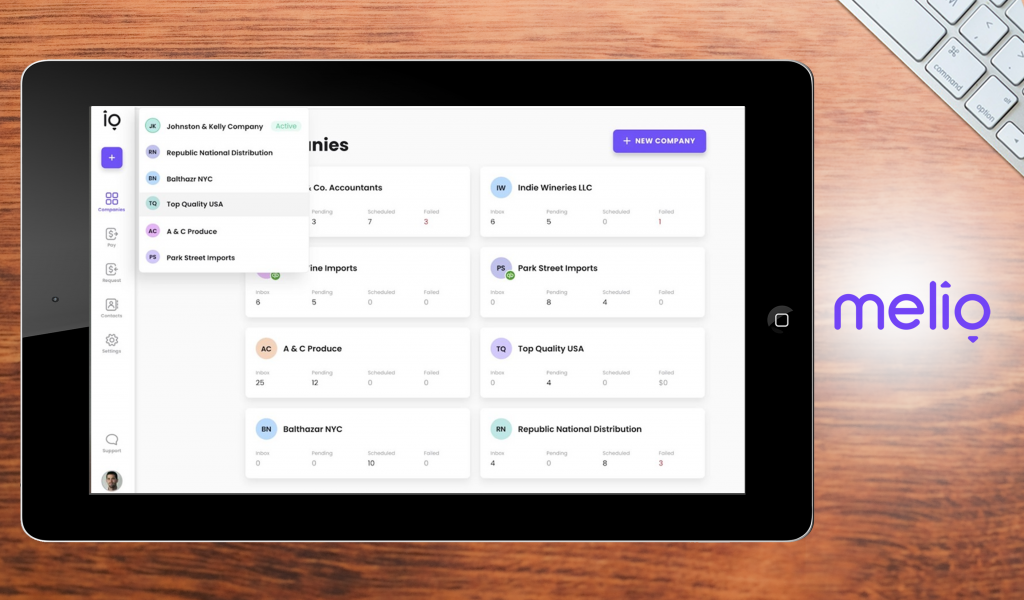
Melio is another useful accounts payable (AP) software for bookkeeping. As it is designed for small businesses, it is also very useful for startups. The platform allows users to make payments via bank transfer and debit card for free. Moreover, provided you are in the US, you can even send payments through these channels to vendors who only accept checks. Also, Melio mails or deposits checks to vendors for you. With these, you can save the time and effort it takes to send out a check. This does not only expedites the payment process but also makes it very easy.
Because everything AP is online with Melio, you will have all your records for bookkeeping. Moreover, Melio is totally free. So, it can be a part of your startup’s software arsenal. So, how does Melio make its money? As the platform offers the option to pay your bills using credit cards, it charges a very low tax-deductible 2.9%. Again, this is even for vendors who don’t accept credit cards. Also, as mentioned, bank transfer (AHC) payments are always free. It’s the same with receiving payments from Melio.
Key accounts payable software features include billing and invoicing, duplicate payment alerts, approval process control, and fraud detection. Furthermore, Melio syncs with QuickBooks for better bookkeeping and accounting. Lastly, even though Melio doesn’t have a native mobile application, it is highly mobile optimized.
Detailed Melio Review
Key Features of Melio
- Free ACH Payment Processing
- Billing and Invoicing
- Approval Process Control
- Online Payment Processing
- Fraud Detection
- QuickBooks Integration
- Duplicate Payment Alert
- Checks Processing
13. Sage 50 Accounting
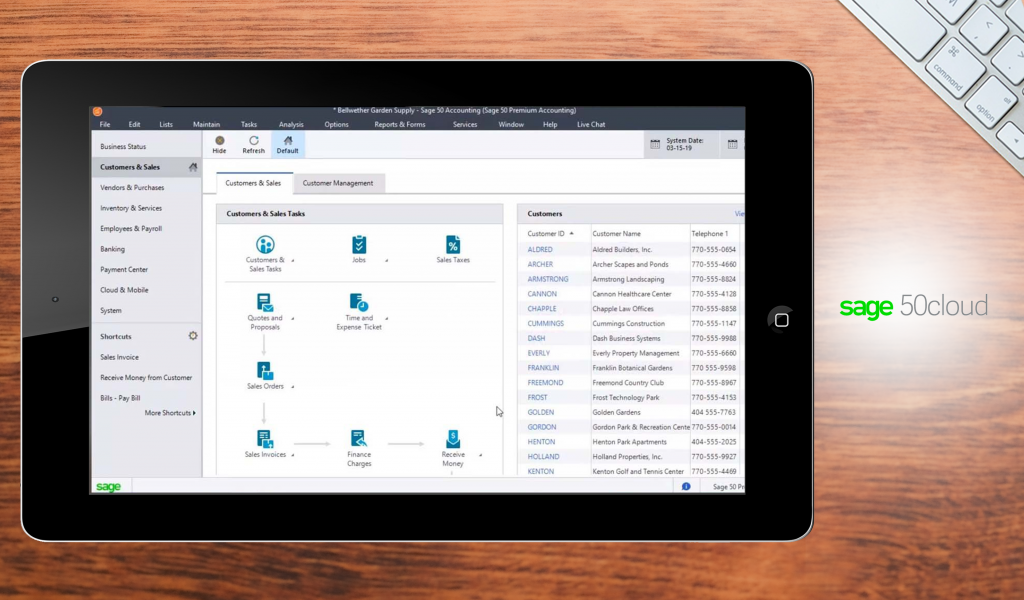
Sage 50 Accounting is a comprehensive bookkeeping software designed for small businesses. It simplifies everyday invoicing and financial management tasks, making it an ideal solution for businesses with in-house bookkeepers. The software provides a complete view of your business finances and inventory and includes foundational accounting tools that streamline and simplify your bookkeeping process. Sage 50 lets you create quotes, sales orders, and invoices with industry-specific functionalities.
Unique integration capabilities distinguish Sage 50 Accounting, enabling connectivity to banks for real-time financial tracking. Its seamless integration of bank feeds with the Account Reconciliation module combines desktop robustness with cloud accessibility. This versatile approach allows businesses to access data anytime, anywhere, providing the advantages of both desktop and cloud-based bookkeeping. The platform also works seamlessly with other popular applications including Microsoft products and Realtrac among others.
Detailed Sage 50cloud Accounts Review
Key Features of Sage 50cloud
- Cash Flow Management
- Automated Bank Reconciliation
- Automated Billing
- Billing and Invoicing
- Budgeting and Forecasting
- Tax Management
- Job/Project Management
- Receipt Management
14. Xero
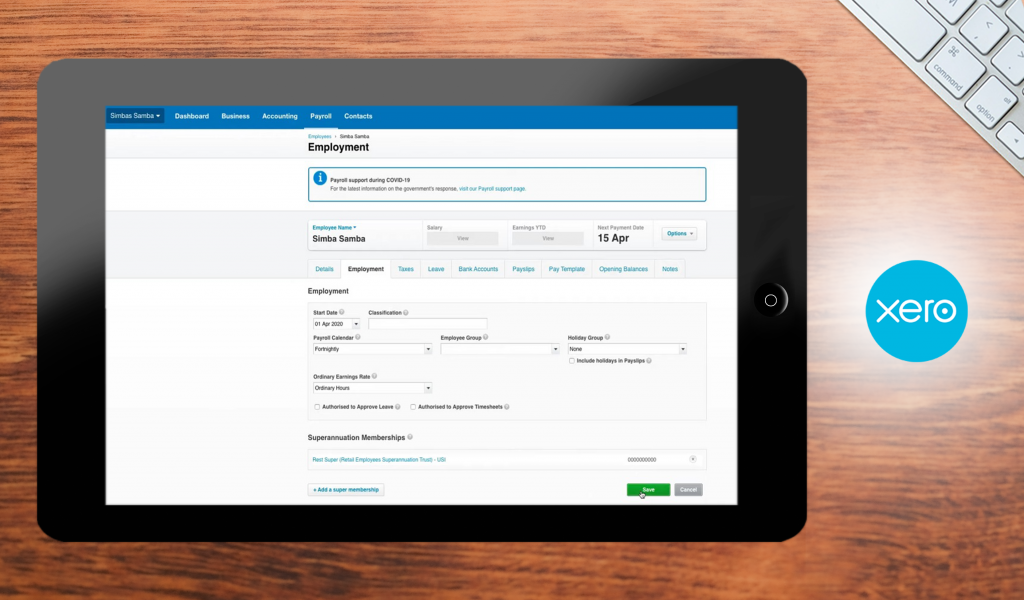
Xero is a popular accounting software platform. It is designed for SMEs and fits extremely well with startups. Moreover, it has enough accounting features to become your command center for your financial processes including bookkeeping. Key features include financial reporting, expense claims, bank reconciliation, invoicing, purchase orders, and fixed assets management. Moreover, it also has modules to manage payroll activities and has multi-currency support. So, it is pretty useful for startups with international operations.
In fact, the product is designed with startups in mind. This is apparent in its monthly pricing plans: Early ($5.50), Growing ($16), and Established ($31). So, you can scale up its features and capabilities from founding your business to making it an established player in your industry.
Moreover, the product is also very easy to use. The UI has a neat design and is very intuitive. Not much training is needed to operate it. Also, the software provider offers self-service learning tools. And, it has a large active community of users that help each other optimize their software use.
Like other top applications, Xero works well with other third-party solutions. These include Square, Vend, Expensify, Mogul, and Zenpayroll. Lastly, it also has mobile apps for both iOS and Android devices. So, you can access it anytime, anywhere.
Detailed Xero Review
Key Features of Sage Xero
- Financial Reporting
- Expense Claims
- Purchase Orders
- Dashboard
- Payroll
- Multi-Currency Support
- Fixed Assets
- Inventory Management
15. Rossum

Rossum is a unique document-based business solution that can be very helpful for bookkeeping for startups. The platform, with its cognitive data capture module, allows you to easily scan, collect, and validate data from all types of documents from multiple sources. These include invoices, receipts, purchase orders, and other forms. These are all sent to its Intelligent Inbox that acts as a single curated transactions feed.
Moreover, with its state-of-the-art AI and machine learning (ML) technology, it learns from users’ behavior like which documents have low confidence scores. Over time, you can set the system to do this automatically. Rossum really grows as your business grows at it molds itself according to your changing needs. And, it is deployed personalized to what you need.
Other features include audit trails, analytics, data matching, document curation, and unified mail channels. Moreover, it allows data capture through its mobile app for both Android and iOS devices. In this way, you can save your invoices or other important bookkeeping documents on the system even if you are on the go.
Furthermore, Rossum works well with other third-party platforms. Thus, you can extend its capabilities. It integrates seamlessly with Dropbox, Zoho Books, Google Drive, and Sage Intacct. It is also known to function well with ERP systems. Lastly, as it is available via a quote-based subscription.
Detailed Rossum Review
Key Features of Rossum
- Cognitive Data Capture
- Intelligent Document Creation
- Audit Trails
- Single Document Gateway
- Usage Reporting Dashboard
- Constantly Improving AI Engine
- Matching Extracted Data
- Unified Mail Channels
What is the best bookkeeping software for startups?
Even though all the bookkeeping software for startups listed here are ideal for fast-growing companies, one rises above the rest and that is FreshBooks. Not only because its pricing tiers are designed for growth, but it has a comprehensive set of features. The platform has modules for online invoicing, expense tracking, time tracking, project management, payments, accounting reports, and tax management. It is, in fact, a complete accounting platform. Moreover, the product is easy to use and highly customizable. Hence, users can easily configure the platform to fit their particular business needs.
Furthermore, FreshBooks integrates with other third-party platforms. So, not only you can extend its capabilities but directly use it instantly with your current software stack. With this, you can easily make FreshBooks your financial command center that goes beyond just bookkeeping. The product is also prized for its powerful automation capabilities as an accounting solution for startups.
We hope that this answers that question. However, you can also find other specialized tools above that work well with FreshBooks. These are in the areas of online payments and document management. The thing is that, in this day and age, it is really best to use software stacks—specialized tools built around a general platform. In this way, you can increase efficiency and visibility in different areas of business.
Key Insights
- Importance of Technology: Investing in proper technology is crucial for startups to streamline essential business operations like bookkeeping, which helps avoid costly human errors.
- Common Mistakes: Many startups either hire inexperienced bookkeepers or attempt bookkeeping themselves to save money, risking significant errors and financial issues.
- Digital Transformation: A significant number of businesses are transitioning to digital bookkeeping solutions, with many already adopting these tools to improve efficiency and accuracy.
- Professional Services: While outsourcing accounting services is common among SMBs, many find their accountants to be more reactive than proactive, highlighting the need for integrated digital solutions.
- Top Solutions: Solutions like FreshBooks, NetSuite ERP, and QuickBooks Online offer comprehensive features tailored to startups, such as automated invoicing, expense tracking, and tax management.
- Scalability: Modern bookkeeping software offers scalable solutions that grow with the business, providing flexibility and a wide range of features at different price points.
- Integration: Effective bookkeeping software integrates well with other business tools, enhancing overall business efficiency and data accuracy.
- Cost Efficiency: Digital bookkeeping solutions often provide cost-effective plans that fit within the budget constraints of startups while offering robust features.
- Automation: Features like automated invoicing, expense tracking, and financial reporting save time and reduce manual errors, allowing business owners to focus on growth.
FAQ
- Why is investing in bookkeeping software important for startups? Investing in bookkeeping software is crucial for startups as it helps streamline financial operations, reduces the risk of human error, ensures accurate financial records, and allows business owners to focus on growth rather than manual bookkeeping tasks.
- What are the common mistakes startups make with bookkeeping? Common mistakes include hiring inexperienced bookkeepers, attempting to handle bookkeeping themselves to save money, and using outdated methods like spreadsheets, which increase the risk of errors and inefficiencies.
- How does digital bookkeeping software benefit startups? Digital bookkeeping software offers automation of invoicing, expense tracking, and financial reporting. It improves accuracy, saves time, and provides real-time visibility into financial data, which is essential for informed decision-making.
- What are some of the top bookkeeping software solutions for startups? Some of the top bookkeeping software solutions for startups include FreshBooks, NetSuite ERP, QuickBooks Online, Sage Business Cloud Accounting, and Zoho Books. These solutions offer a range of features tailored to the needs of growing businesses.
- Why should startups consider scalable bookkeeping software? Scalable bookkeeping software grows with the business, providing flexibility to add features and handle increased financial complexity as the business expands. This ensures that the software remains useful and efficient over time.
- How do bookkeeping software solutions integrate with other business tools? Many bookkeeping software solutions integrate seamlessly with other business tools such as CRM systems, payment gateways, and project management platforms. This integration enhances overall business efficiency by ensuring data consistency and reducing the need for manual data entry.
- Are there cost-effective bookkeeping solutions for startups? Yes, there are several cost-effective bookkeeping solutions tailored for startups, offering essential features at affordable price points. Solutions like FreshBooks and QuickBooks Online provide robust functionalities without breaking the bank.
- What role does automation play in modern bookkeeping software? Automation plays a significant role in modern bookkeeping software by handling repetitive tasks such as invoicing, expense tracking, and financial reporting. This reduces manual effort, minimizes errors, and allows business owners to focus on strategic activities.
- How can startups ensure they choose the right bookkeeping software? Startups should evaluate their specific needs, budget, and scalability requirements. They should also consider software that offers comprehensive features, integration capabilities, user-friendly interfaces, and positive reviews from other small businesses.
- What are the benefits of integrating bookkeeping software with other business systems? Integrating bookkeeping software with other business systems ensures seamless data flow, improves accuracy, reduces manual data entry, and enhances overall operational efficiency. This integration allows for a holistic view of the business’s financial health.


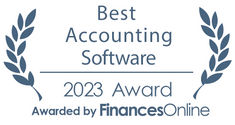
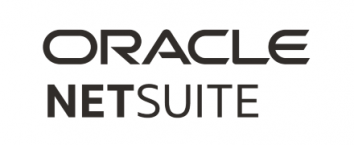



























Leave a comment!